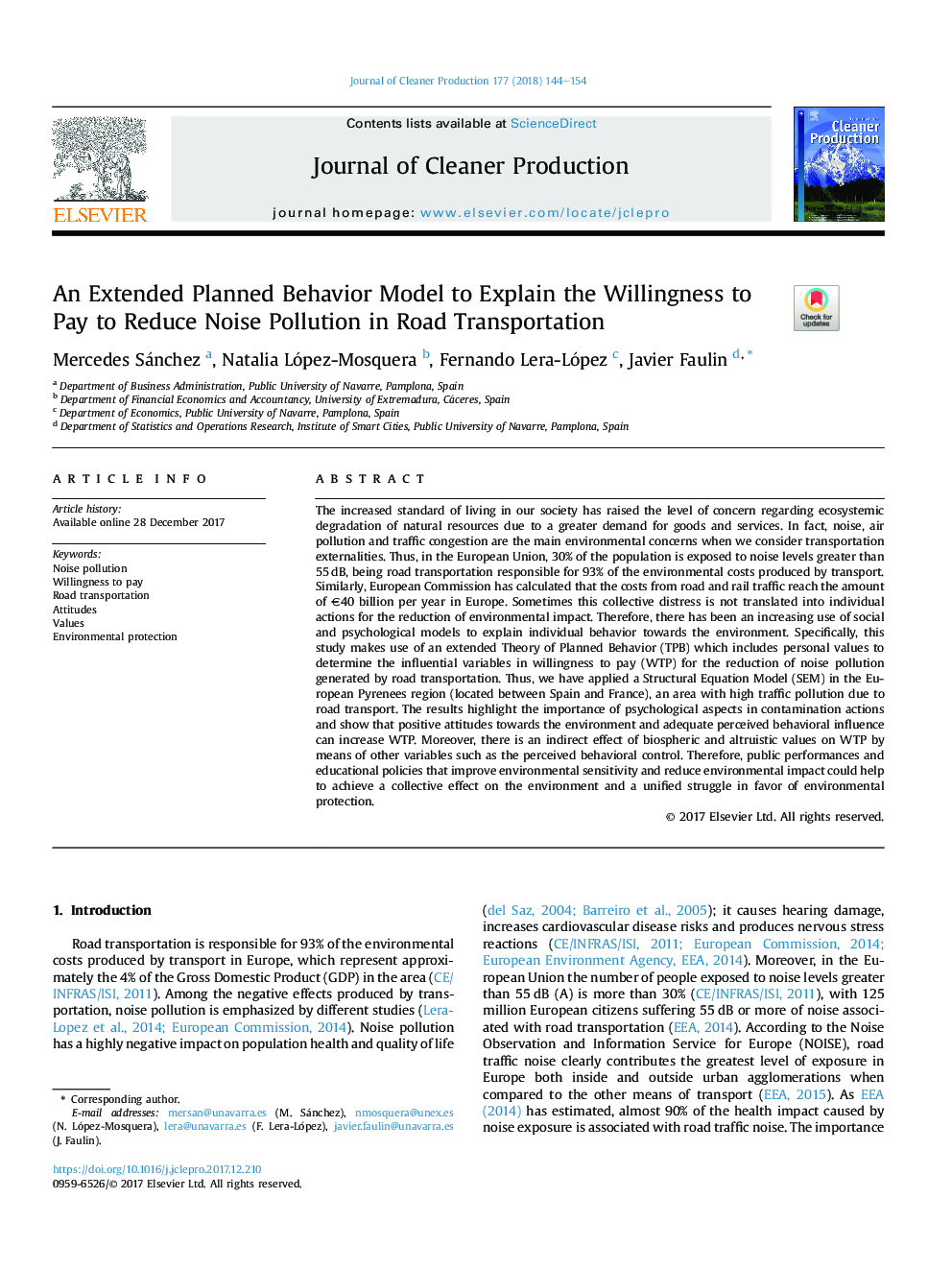| کد مقاله | کد نشریه | سال انتشار | مقاله انگلیسی | نسخه تمام متن |
|---|---|---|---|---|
| 8098621 | 1522076 | 2018 | 11 صفحه PDF | دانلود رایگان |
عنوان انگلیسی مقاله ISI
An Extended Planned Behavior Model to Explain the Willingness to Pay to Reduce Noise Pollution in Road Transportation
ترجمه فارسی عنوان
یک مدل رفتار گسترده برنامه ریزی شده برای توضیح آمادگی پرداخت برای کاهش آلودگی صوتی در حمل و نقل جاده ای
دانلود مقاله + سفارش ترجمه
دانلود مقاله ISI انگلیسی
رایگان برای ایرانیان
کلمات کلیدی
آلودگی صوتی، تمایل به پرداخت، حمل و نقل جاده ای، نگرش های، ارزش های، حفاظت از محیط زیست،
موضوعات مرتبط
مهندسی و علوم پایه
مهندسی انرژی
انرژی های تجدید پذیر، توسعه پایدار و محیط زیست
چکیده انگلیسی
The increased standard of living in our society has raised the level of concern regarding ecosystemic degradation of natural resources due to a greater demand for goods and services. In fact, noise, air pollution and traffic congestion are the main environmental concerns when we consider transportation externalities. Thus, in the European Union, 30% of the population is exposed to noise levels greater than 55â¯dB, being road transportation responsible for 93% of the environmental costs produced by transport. Similarly, European Commission has calculated that the costs from road and rail traffic reach the amount of â¬40 billion per year in Europe. Sometimes this collective distress is not translated into individual actions for the reduction of environmental impact. Therefore, there has been an increasing use of social and psychological models to explain individual behavior towards the environment. Specifically, this study makes use of an extended Theory of Planned Behavior (TPB) which includes personal values to determine the influential variables in willingness to pay (WTP) for the reduction of noise pollution generated by road transportation. Thus, we have applied a Structural Equation Model (SEM) in the European Pyrenees region (located between Spain and France), an area with high traffic pollution due to road transport. The results highlight the importance of psychological aspects in contamination actions and show that positive attitudes towards the environment and adequate perceived behavioral influence can increase WTP. Moreover, there is an indirect effect of biospheric and altruistic values on WTP by means of other variables such as the perceived behavioral control. Therefore, public performances and educational policies that improve environmental sensitivity and reduce environmental impact could help to achieve a collective effect on the environment and a unified struggle in favor of environmental protection.
ناشر
Database: Elsevier - ScienceDirect (ساینس دایرکت)
Journal: Journal of Cleaner Production - Volume 177, 10 March 2018, Pages 144-154
Journal: Journal of Cleaner Production - Volume 177, 10 March 2018, Pages 144-154
نویسندگان
Mercedes Sánchez, Natalia López-Mosquera, Fernando Lera-López, Javier Faulin,
